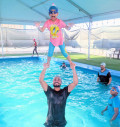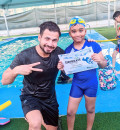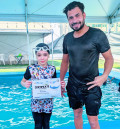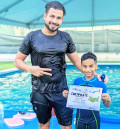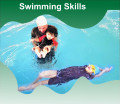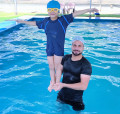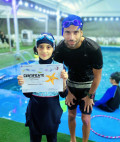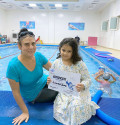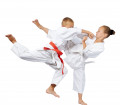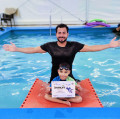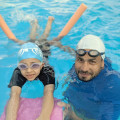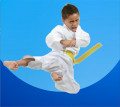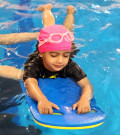
Effective Tips for Kids Karate Mastering Leg Movements
2024-02-17 - karateIntroduction:
Karate is not just about punches and kicks; it's an art form
that requires discipline, focus, and precision. For kids learning karate,
mastering leg movements is essential for their overall progress. In this
article, we'll explore five effective tips to help kids improve their leg
techniques in karate, ensuring they become skilled and confident martial
artists.
Understanding the Basics
Karate, a traditional Japanese martial art, emphasizes
striking techniques using the hands and feet. Leg movements play a crucial role
in executing various karate techniques, including kicks, sweeps, and blocks.
Before diving into advanced techniques, it's essential for kids to grasp the
fundamental principles of leg movements in karate.
Karate training involves a combination of stances, footwork,
and balance exercises. Beginners often start with basic stances like the front
stance (zenkutsu dachi) and the horse stance (kiba dachi),which form the
foundation for executing powerful kicks and strikes.
Developing Flexibility
Flexibility is key to performing dynamic kicks and movements
in karate. For kids, developing flexibility in the legs is essential to enhance
their range of motion and prevent injuries. Incorporating stretching exercises
into their training routine can significantly improve flexibility and mobility.
Encourage kids to perform stretching exercises such as leg
swings, hamstring stretches, and calf stretches regularly. Dynamic stretches,
where they move their legs through a full range of motion, can help improve
flexibility while warming up their muscles before training sessions.
Perfecting Kicking Techniques
Kicking is one of the primary techniques in karate,
requiring precision, speed, and control. Teaching kids proper kicking
techniques from the beginning sets a solid foundation for their progress in
karate. Emphasize the importance of proper form, balance, and execution when
practicing kicks.
Start with basic kicks such as front kicks (mae geri) and
side kicks (yoko geri),focusing on technique rather than power initially. As
kids gain confidence and proficiency, gradually introduce more advanced kicks
like roundhouse kicks (mawashi geri) and hook kicks (hiza geri). Regular
practice and feedback from instructors are crucial for perfecting kicking
techniques.
Drilling Footwork Patterns
Footwork is an integral aspect of karate that often gets
overlooked. Teaching kids various footwork patterns and drills can improve
their agility, balance, and coordination. Incorporate footwork exercises into
their training sessions to enhance their overall performance in karate.
Start with simple drills like forward and backward stepping,
side-to-side shuffling, and pivoting movements. As kids become more proficient,
introduce more complex footwork patterns such as angle changes and circular
movements. Practicing footwork drills regularly will help kids move fluidly and
efficiently during sparring and kata performances.
Building Strength and Power
Building strength and power in the legs is essential for
executing explosive techniques in karate. Incorporate strength training
exercises into kids' workouts to develop muscular strength and power in their
lower body. However, it's important to ensure that the exercises are
age-appropriate and supervised by qualified instructors.
Include exercises such as squats, lunges, calf raises, and
plyometric drills in their training regimen. Focus on proper technique and
controlled movements to prevent injuries and maximize effectiveness. As kids
progressively overload their muscles, they'll develop the strength and power
needed to perform advanced karate techniques with ease.
Conclusion:
Mastering leg movements is a fundamental aspect of kids'
karate training, enhancing their agility, strength, and technique. By following
these five effective tips and incorporating them into their training regimen,
kids can improve their leg techniques and progress confidently in their karate
journey. With dedication, practice, and proper guidance, every child can become
a skilled and proficient martial artist.
Remember, the key to success in karate lies in consistent
practice, patience, and perseverance. Encourage kids to embrace the challenges,
celebrate their progress, and enjoy the journey of learning and mastering the
art of karate.







.jpg)















































